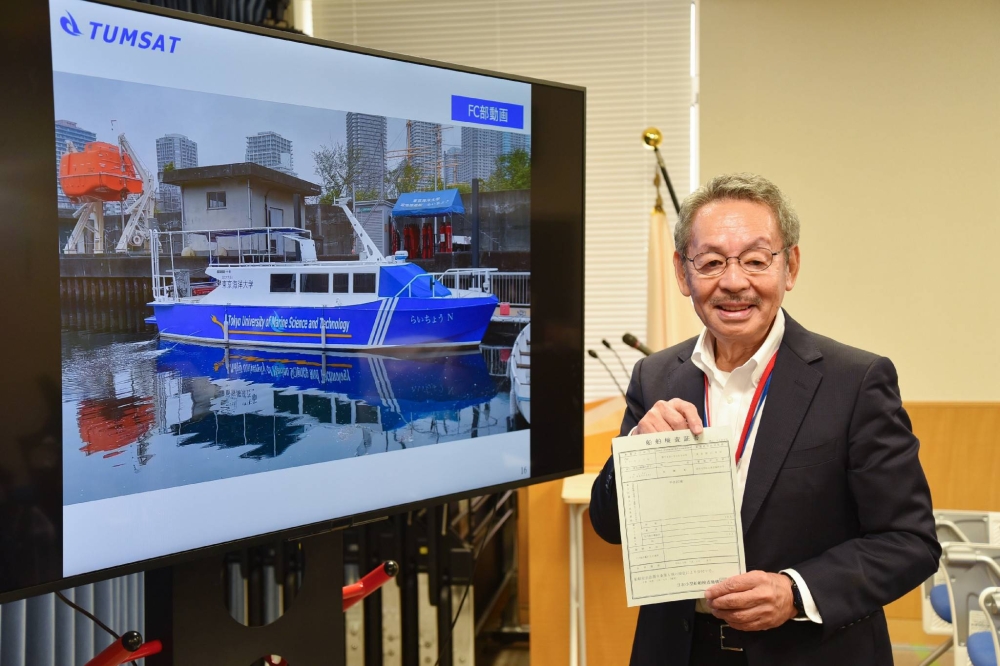Tokyo University's Raicho N: Japan's First Hydrogen-Powered Ship Passes Inspection
Key Ideas
- Tokyo University's Raicho N becomes the first ship in Japan powered solely by hydrogen fuel cell and lithium-ion battery to pass a mandatory ship inspection.
- The hybrid control system's success paves the way for a larger passenger boat for the 2025 World Exposition in Osaka, utilizing similar technology.
- The project involved the collaboration of government-linked organizations and industry players, showcasing a potential future for hydrogen-powered ships in various maritime sectors.
- Challenges remain in establishing infrastructure for hydrogen supply, crucial for widespread adoption of hydrogen fuel cell ships.
The Tokyo University of Marine Science and Technology achieved a significant milestone as its hydrogen-powered ship, Raicho N, successfully passed Japan's mandatory ship inspection. The vessel, powered solely by a hydrogen fuel cell and lithium-ion secondary battery systems, received certification from the transport ministry. The university's specially appointed professor, Tsuyoshi Ode, expressed confidence in the practical operation of the fuel cell ship, highlighting its potential for extensive use in the future.
The Raicho N, weighing 9.1 tons and accommodating 12 individuals, showcased a hybrid control system that integrated both power sources effectively. This successful demonstration has led to plans for a larger passenger boat, capable of carrying 150 people, to be operational at the 2025 World Exposition in Osaka. The ship's hydrogen fuel cell system, similar to that of Toyota Motor's Mirai car, requires three tanks of high-pressure hydrogen gas at room temperature.
During testing, the Raicho N exhibited impressive performance, being able to sail approximately 75 kilometers in five hours at a speed of 8 knots per hour. The project, supported by the government-linked New Energy and Industrial Technology Development Organization (NEDO), was conducted over a two-year period in the seas around the university's campus in Tokyo.
Hydrogen fuel cell ships like the Raicho N are seen as ideal for small coastal vessels, including freighters, passenger ships, and fishing boats. While the success of this project underscores the viability of hydrogen-powered ships, challenges such as establishing a hydrogen supply infrastructure persist. The future of maritime transport may be increasingly shaped by innovative and sustainable solutions like the Raicho N, heralding a new era in the industry.
Topics
Maritime
Innovation
Sustainable Energy
Marine Technology
Alternative Fuel
Future Transport
Ship Certification
Latest News
